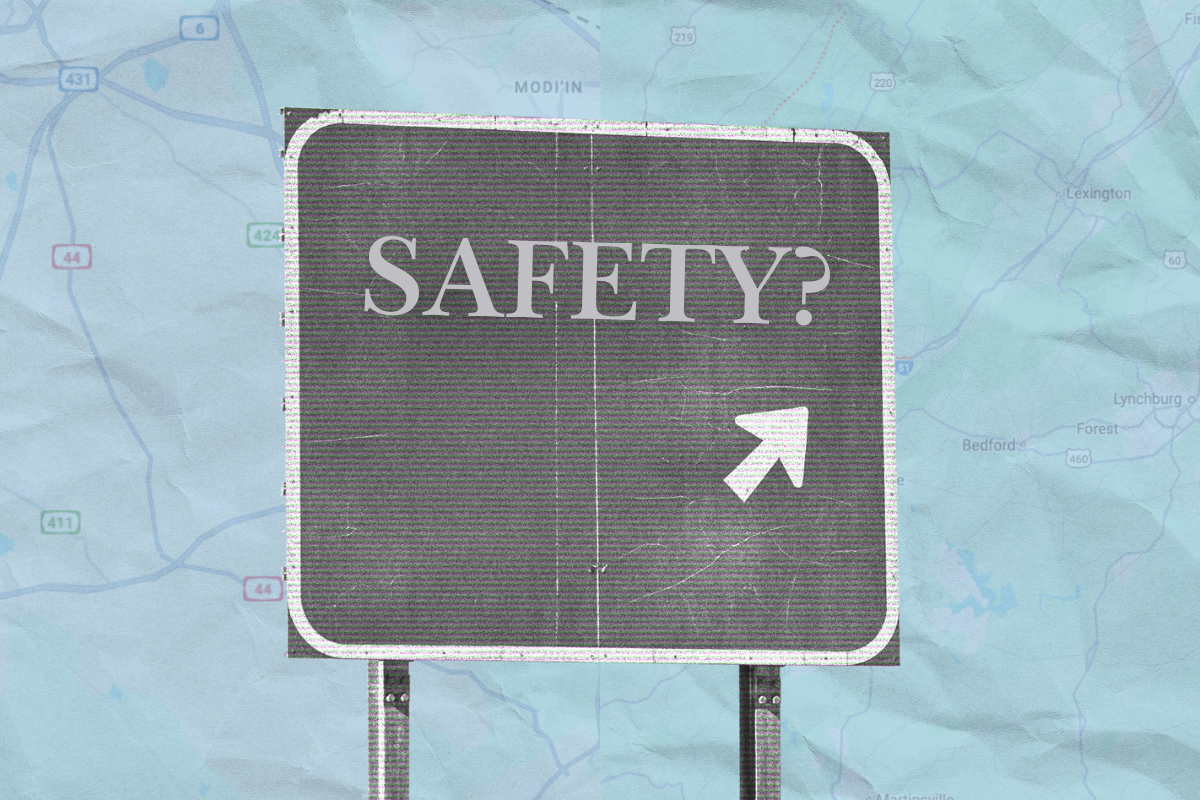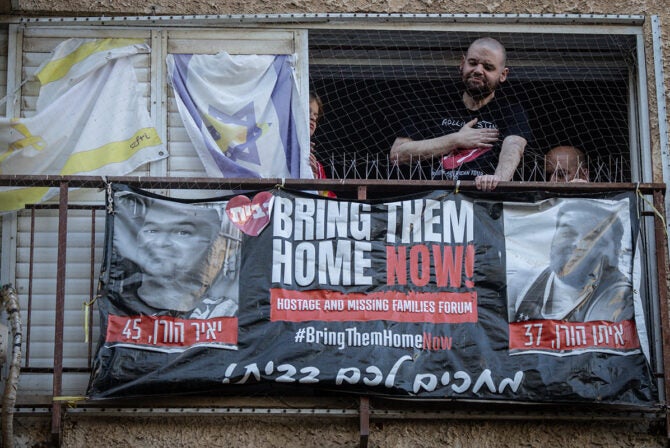“Mom, does it make sense that I feel stressed?” my 9-year-old asks, as we stand packed in the building bomb shelter with 40 neighbors. Sweat runs down our necks, news blares from nearby phones and booms erupt overhead.
We are stuffed in a space the size of an American dining room, filled with folding chairs, portable air conditioners and personal bags full of water, snacks and chargers. The room is stark, the walls concrete and peeling. Even with the fans and air conditioners blasting, the heat from the bodies is suffocating. My neighbors range from a 2-year-old baby to an 80-year-old Greek grandmother, with a few gun-carrying soldiers in between. Once everyone is inside, someone pulls the heavy metal door closed and locks it with a loud clang.
“Yes,” I answer. “Yes, it makes sense.” I pull him close and hug him.
Israelis are used to sirens and safe rooms, but this time feels different. This round of hostilities began with an alert from our phone that was so jarring it is recorded somewhere in the depths of my soul, a noise so traumatic it will never leave me. Israel actually developed a new siren for this attack, one aimed at making sure we knew to take shelter.
Israel attacked Iran at 3 a.m. on June 13, 2025, an hour before my husband was supposed to land back in Israel. He never landed; instead, he has been stuck outside of Israel, waiting for the airspace to reopen so he can return. Meanwhile, my kids and I are at the mercy of the alerts.
Normally, these alerts are warning us of incoming missiles, but this first siren was preemptive, a tactic meant to keep us safe in case Iran immediately responded. We huddled in the shelter, knowing that Israel had been considering exactly this kind of attack, but still surprised at the timing and gravity of it all.
Some Israelis have shelters in their actual homes or apartments, but we have a shared shelter on the entrance floor of our building. When the alert sounds, with its high pitched shriek, I jump out of bed, slide my feet into waiting shoes, and go from room to room, waking my three children. Their shoes are placed at different angles by the door so each kid can slide them on easily and run down the stairs.
We live in a five-floor building in suburban Herzliya and when there is news that missiles are incoming, multiple things happen: We receive a 10-minute warning on our phones that missiles are expected; then when they arrive, the alert comes both on our phones and through a national siren system that rings out in the affected areas. In the last few days, this has been happening all over Israel, forcing millions of Israelis into bomb shelters.
In the last 20 months, when a siren sounds, most of my neighbors stand in the stairwell, another option for shelter, but these attacks are bigger and the hits are harder. With the Iron Dome right next to us, we hear defensive booms and fighter jets breaking the barrier of sound, noises that scare you no matter your age.
Five days into this current chapter of what feels like a never ending war, we are exhausted from middle of the night sirens, an anxiety that never leaves and the big question that has been plaguing us since October 7: Why are we here?
As an American married to an Israeli, we have an option. We could jump ship and move to the United States. In Hebrew, there is a saying: “Ein li eretz acheret.” In English: “I have no other country.” But I do. I am a dual citizen, as are my children. We could decide to leave.
In the immediate aftermath of October 7, my answer to the question “why are we here?” was clear. My family on Kibbutz Nir Oz had either been murdered or taken hostage and the highest number of Jews had been killed in one day since the Holocaust. There was nowhere else we wanted to be: to help my family, our neighbors, our country. Being in Israel these past 20 months, we’ve been part of a citizen movement that rose to meet the needs of the country. It has meant feeling part of something bigger than ourselves.
But the question persists: Why are we here?
And there is another one, too: Why does moving to America inspire more fear than relief?
I grew up in Fairfax, Virginia in the ‘80s and ‘90s and faced ongoing, if muted, antisemitism. Students threw pennies at me in the hall, chanting: “Pick it up, Jew, you like money.” Friends took me to church after sleepovers and I was told that my people had killed Jesus and that unless I accepted Christ as my lord, I would go straight to hell. Crosses were burned on the lawns of Jewish friends and our car was egged and spray painted with swastikas and “Die, 6 million more.” If I missed school or a game because I observed a Jewish holiday, I was given a zero on the test or benched from playing the next game.
I didn’t take it sitting down. I wrote op-eds, met with school board members and embraced my Jewish identity rather than shunning it.
But I wanted to raise my Jewish children in a world where they would always feel safe and secure. I wanted their experience of being Jewish to be different than what I experienced as a child. And the pros and cons of what they will experience in Israel versus the United States weigh on me. How do we choose?
If I have learned one thing from living through 620 days of war, it is that the only thing I can control is how I respond. In these ongoing moments of uncertainty, I come back to what I know. At the center of this are humans who all want the same thing: to raise their children in peace with a promise of a secure future. That is true of mothers like me in Herzliya, mothers in Gaza and mothers in Tehran.
Multiple sirens have sounded today, and unlike the first one that signalled Israel’s attack on Iran, my children are not flustered. They now shuffle quickly to the door, carrying books and tablets to keep them busy while we wait for the attack to end, and then come back up and return to what they were doing. I know they are building a resilience that will be unparalleled, but I am not sure for what. I can’t imagine anything worse than this.
I don’t know when I will have the answers to all my questions, but as the Jewish tradition requires of me, I will not stop asking. And in the meantime, I will hug my children close and pray for peace in this region and for children everywhere.








